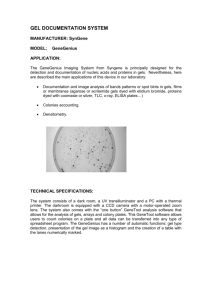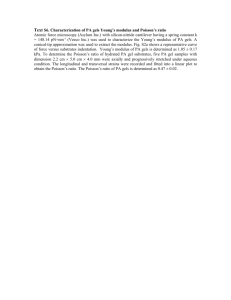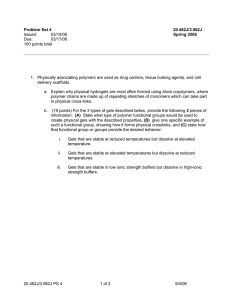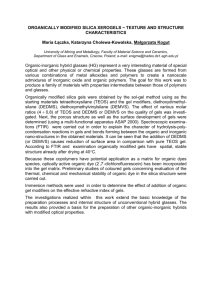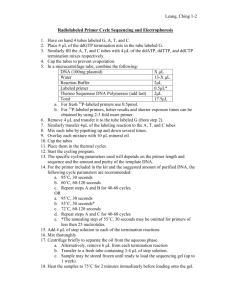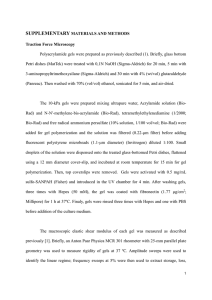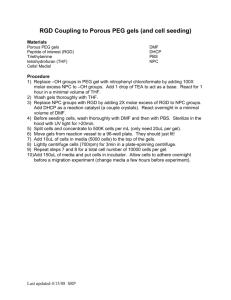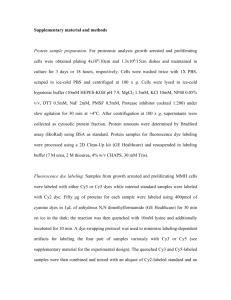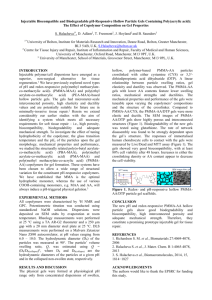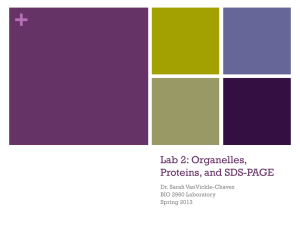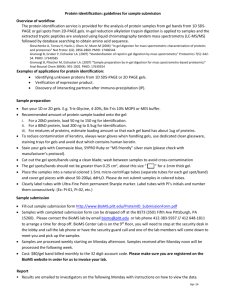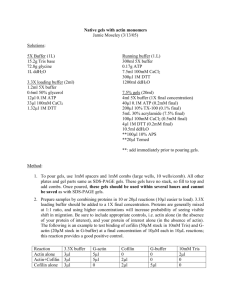pola27077-sup-0001-suppinfo01
advertisement
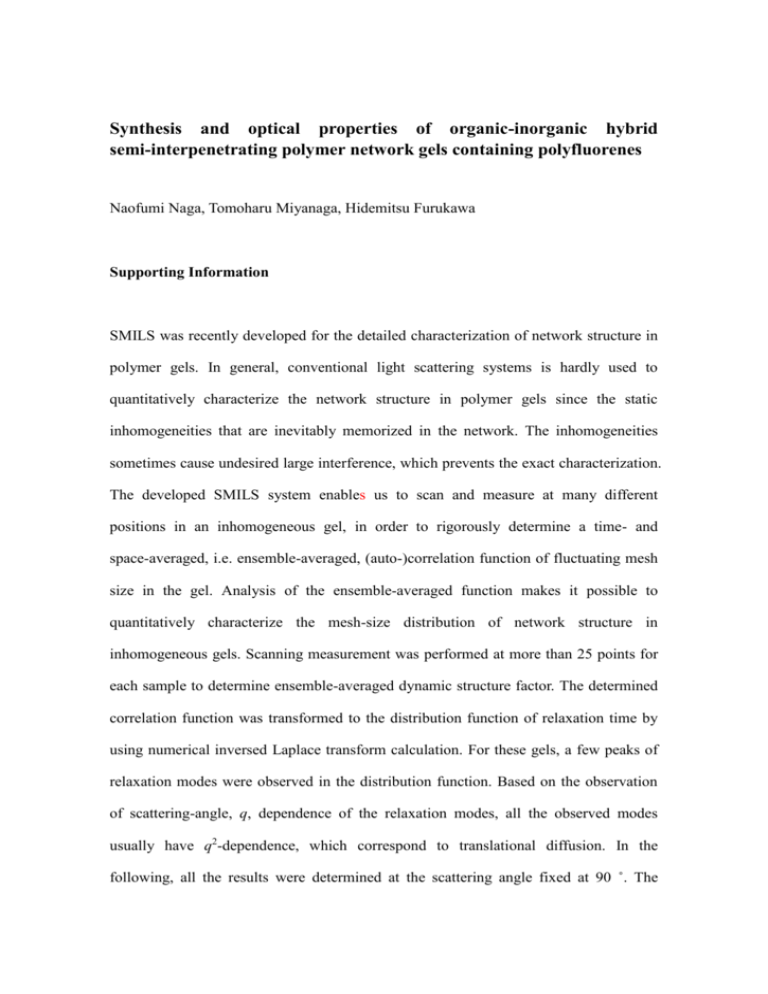
Synthesis and optical properties of organic-inorganic hybrid semi-interpenetrating polymer network gels containing polyfluorenes Naofumi Naga, Tomoharu Miyanaga, Hidemitsu Furukawa Supporting Information SMILS was recently developed for the detailed characterization of network structure in polymer gels. In general, conventional light scattering systems is hardly used to quantitatively characterize the network structure in polymer gels since the static inhomogeneities that are inevitably memorized in the network. The inhomogeneities sometimes cause undesired large interference, which prevents the exact characterization. The developed SMILS system enables us to scan and measure at many different positions in an inhomogeneous gel, in order to rigorously determine a time- and space-averaged, i.e. ensemble-averaged, (auto-)correlation function of fluctuating mesh size in the gel. Analysis of the ensemble-averaged function makes it possible to quantitatively characterize the mesh-size distribution of network structure in inhomogeneous gels. Scanning measurement was performed at more than 25 points for each sample to determine ensemble-averaged dynamic structure factor. The determined correlation function was transformed to the distribution function of relaxation time by using numerical inversed Laplace transform calculation. For these gels, a few peaks of relaxation modes were observed in the distribution function. Based on the observation of scattering-angle, q, dependence of the relaxation modes, all the observed modes usually have q2-dependence, which correspond to translational diffusion. In the following, all the results were determined at the scattering angle fixed at 90 ˚. The observed modes, as assigned to the cooperative diffusion of gel network, were used for the determination of radius of mesh (mesh size) (; m) with Einstein-Stokes formula. 16n 2 R K B sin 2 32 2 where n, R, KB, , , and are refractive index of toluene, Ensemble-averaged relaxation time (s), Boltzmann constant (1.38 × 10-23 JK-1), scattering angle (90º), viscosity coefficient of toluene (5.22 ×10-4 N m2 s-1) or cyclohexane (8.21 ×10-4 N m2 s-1) at 298 K, wave length of incident ray (6.328×10-7 m), respectively. (a) (b) Figure S1. Photographs of TMCTS-HD semi-IPN gels containing PF6L in cyclohexane, monomer concentaration: (a) 4.9 wt%, (b) 9.9 wt%, fluorene unit of PF6L = 1.0 mM. Absorbance (a.u.) 1 438 nm 0.5 0 410 450 490 Wavelength (nm) Figure S2. UV-vis spectrum of the POSS-DD semi-IPN gel containing PF8, monomer concentration: 9.9 wt%, fluorene unit of PF8 = 1.0 mM, excitation wavelength = 380 nm.
